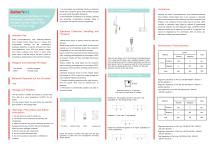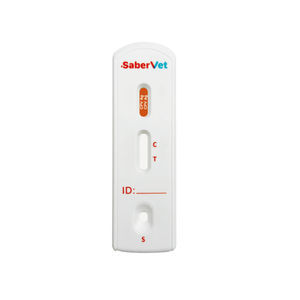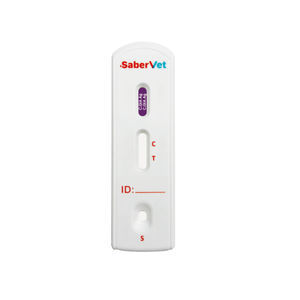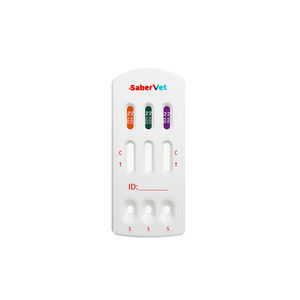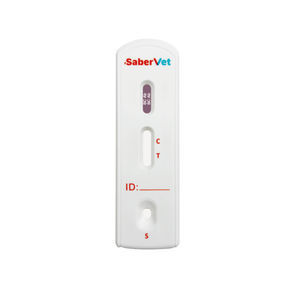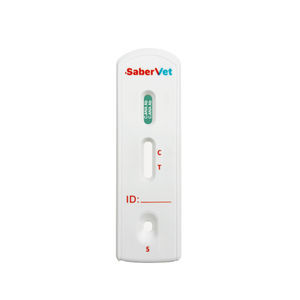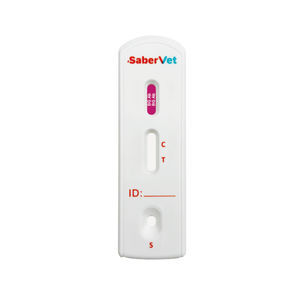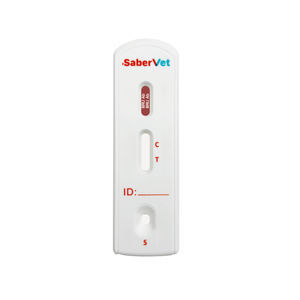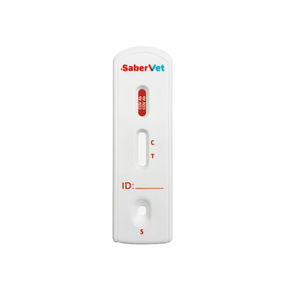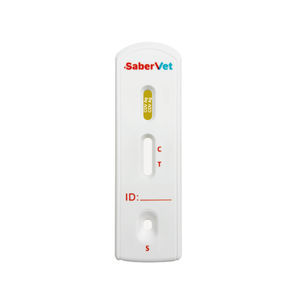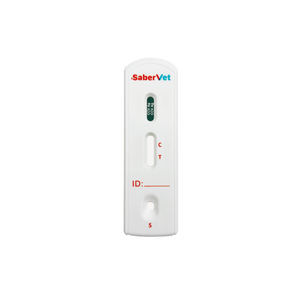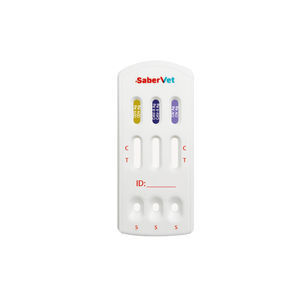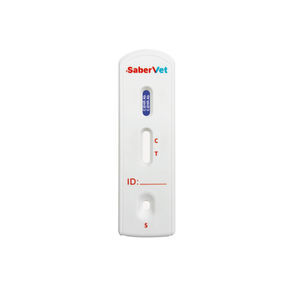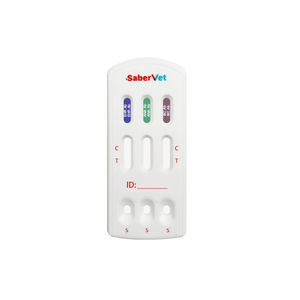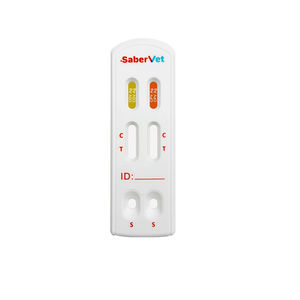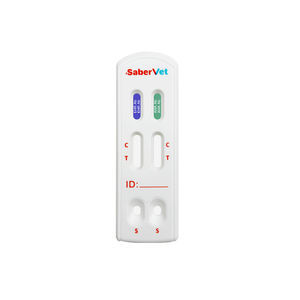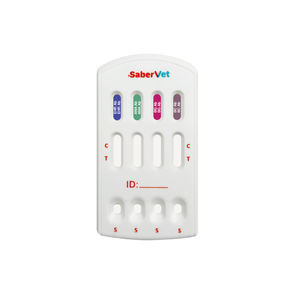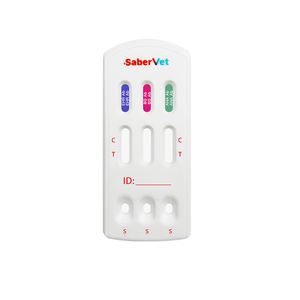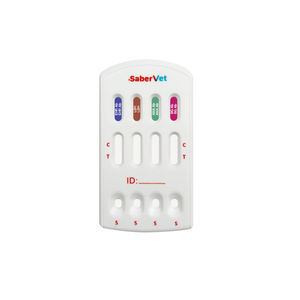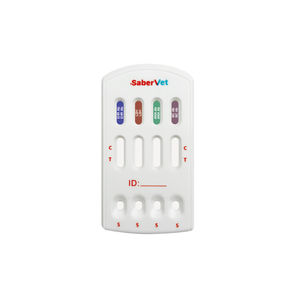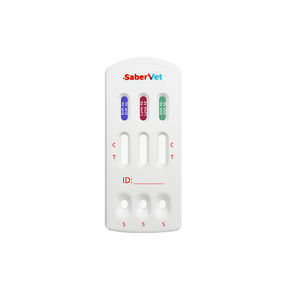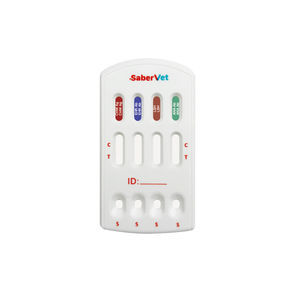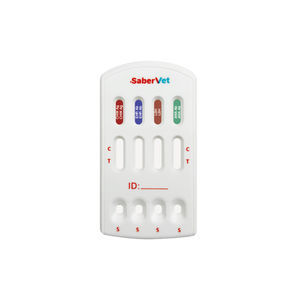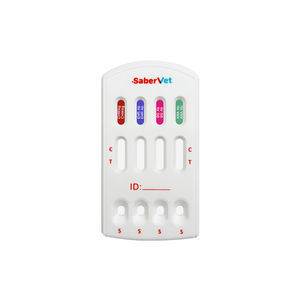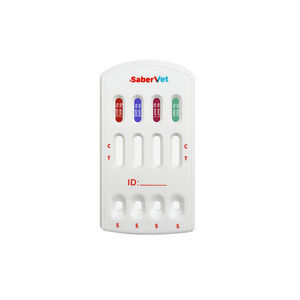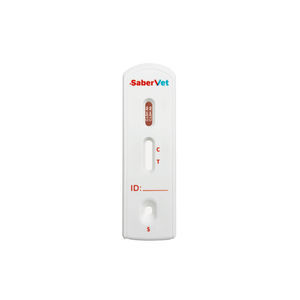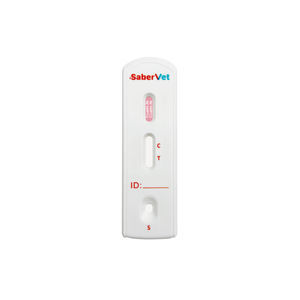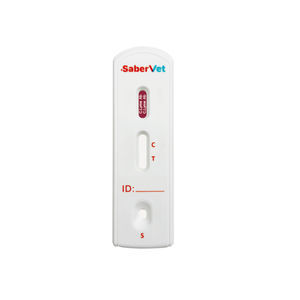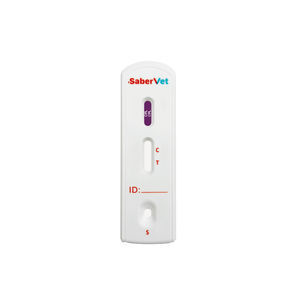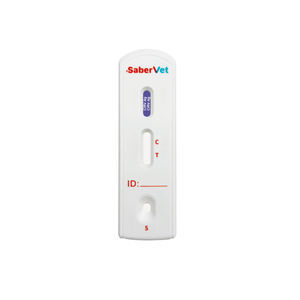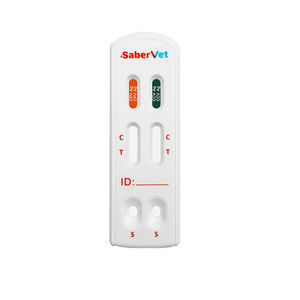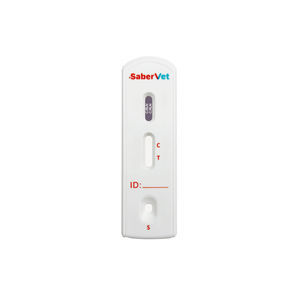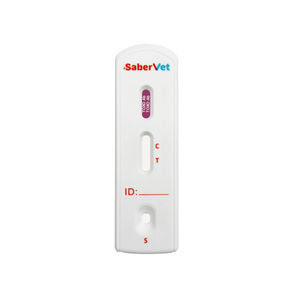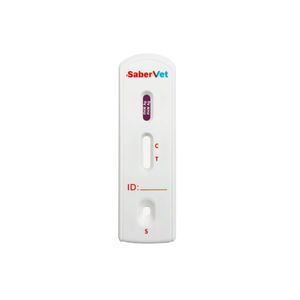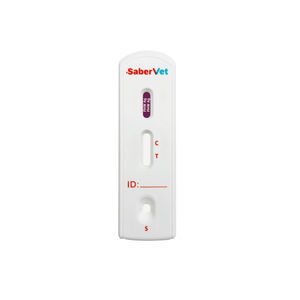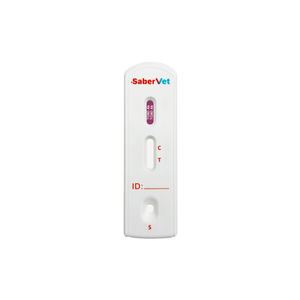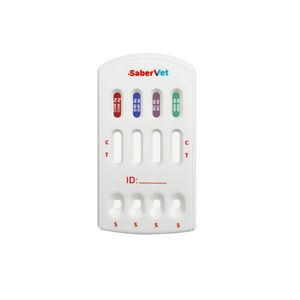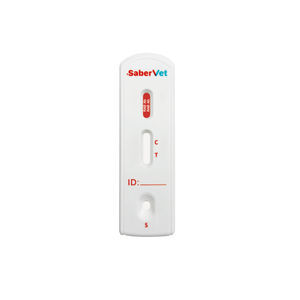
- Laboratorio
- Medicina del laboratorio
- Prueba rápida insuficiencia cardíaca
- Hangzhou Antigenne Technology Co. Ltd
Prueba rápida insuficiencia cardíaca SaberVetveterinariapara cánidosde Ehrlichia
Añadir a mis favoritos
Añadir al comparador
¿Quiere comprar directamente?
Visite nuestra Shop.
Características
- Aplicaciones
- insuficiencia cardíaca
- Ámbito de aplicación
- veterinaria
- Tipo de paciente
- para cánidos
- Microorganismo
- de Ehrlichia, de Dirofilaria
- Tipo de muestra
- de suero, por plasma, de sangre total
- Método de análisis
- de inmunoanálisis, de flujo lateral
- Formato
- de tipo cassette
Descripción
SaberVet Canine Anaplasma Antibody Rapid Test vendido por Antigenne es un inmunoensayo de flujo lateral destinado a la detección cualitativa de anticuerpos específicos de anaplasma canino (C.ANA) en muestras de suero, plasma o sangre total canina. El test es útil para determinar la infección por C.ANA.
Descripción
Canine heartworm disease, canine ehrlichiosis, and canine Anaplasma disease are three common infectious diseases in dogs. Although they are caused by different pathogens and have their own characteristics, there are commonalities in some aspects.
Commonalities between canine heartworm, canine ehrlichiosis and canine Anaplasma
Vía de transmisión
All three diseases are vector-borne: canine heartworm is transmitted by mosquitoes, and canine ehrlichiosis and canine Anaplasma are transmitted by ticks.
Síntomas clínicos
They may all cause systemic symptoms such as fever, lethargy and weight loss.
All may cause anemia and other blood-related symptoms.
Geographic distribution
Globally distributed, especially more common in areas where ticks and mosquitoes are active.
Differences between canine heartworm, canine ehrlichiosis and canine anaplasma
Patógeno
Canine Heartworm Disease: caused by Canine Heartworm (Dirofilaria immitis).
Canine Ehrlichiasis: caused by Ehrlichia canis.
Canine Anaplasmosis: caused by Anaplasma.
Síntomas específicos
Canine Heartworm disease: cough, dyspnea, decreased exercise tolerance, heart failure, ascites.
Canine Ehrlichiosis: characteristic symptoms include nosebleeds, bleeding tendencies, joint pain, and eye problems (e.g., uveitis).
Canine Anaplasma disease: the main signs are acute anemia, jaundice, and splenomegaly.
Ferias
Este distribuidor estará presente en las siguientes ferias

Otros productos de Hangzhou Antigenne Technology Co. Ltd
Canino
Búsquedas asociadas
- Prueba rápida de sangre
- Prueba rápida de flujo lateral
- Prueba rápida inmunológica
- Prueba rápida de tipo cassette
- Prueba rápida para virus
- Prueba rápida de suero
- Prueba rápida por plasma
- Prueba rápida para enfermermedades infecciosas
- Prueba rápida de sangre total
- Prueba rápida de enfermedades respiratorias
- Prueba rápida urinaria
- Prueba rápida para bacterias
- Prueba rápida de heces
- Prueba rápida clínica
- Prueba rápida nasal
- Prueba rápida obstetricoginecológica
- Prueba rápida fluido oral
- Prueba rápida para perro
- Prueba rápida de coronavirus
- Prueba rápida de laboratorio
* Los precios no incluyen impuestos, gastos de entrega ni derechos de exportación. Tampoco incluyen gastos de instalación o de puesta en marcha. Los precios se dan a título indicativo y pueden cambiar en función del país, del coste de las materias primas y de los tipos de cambio.


